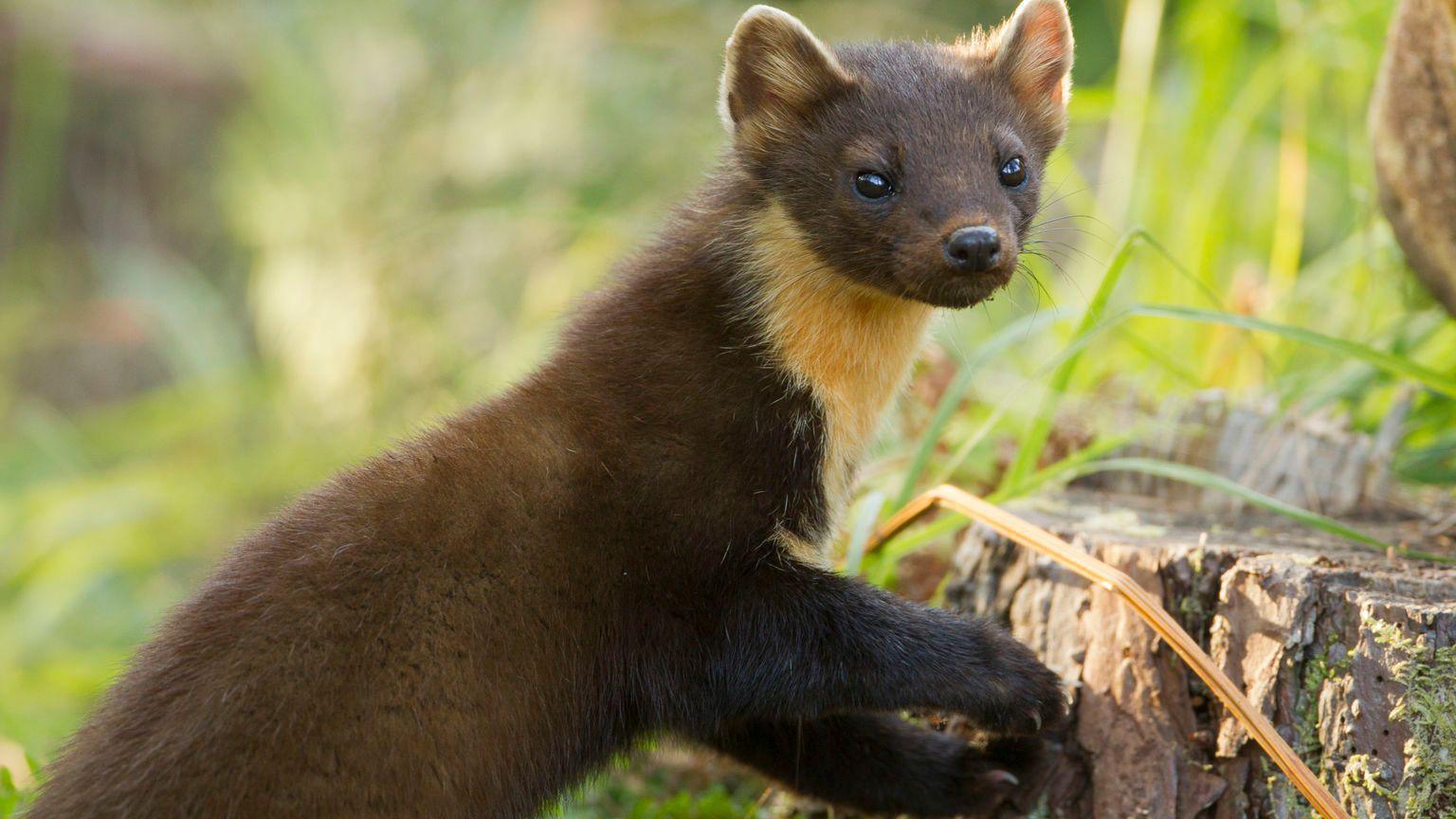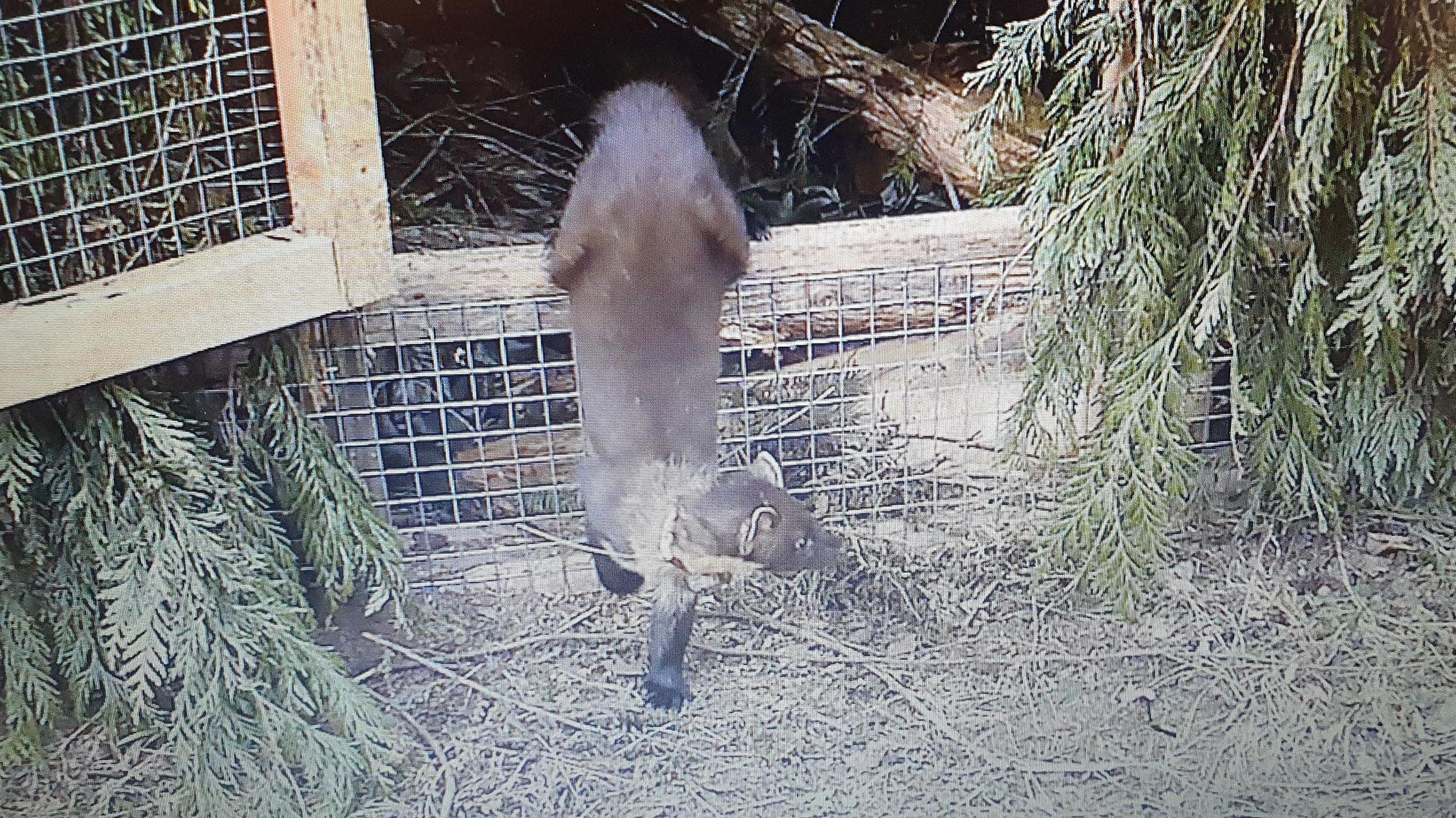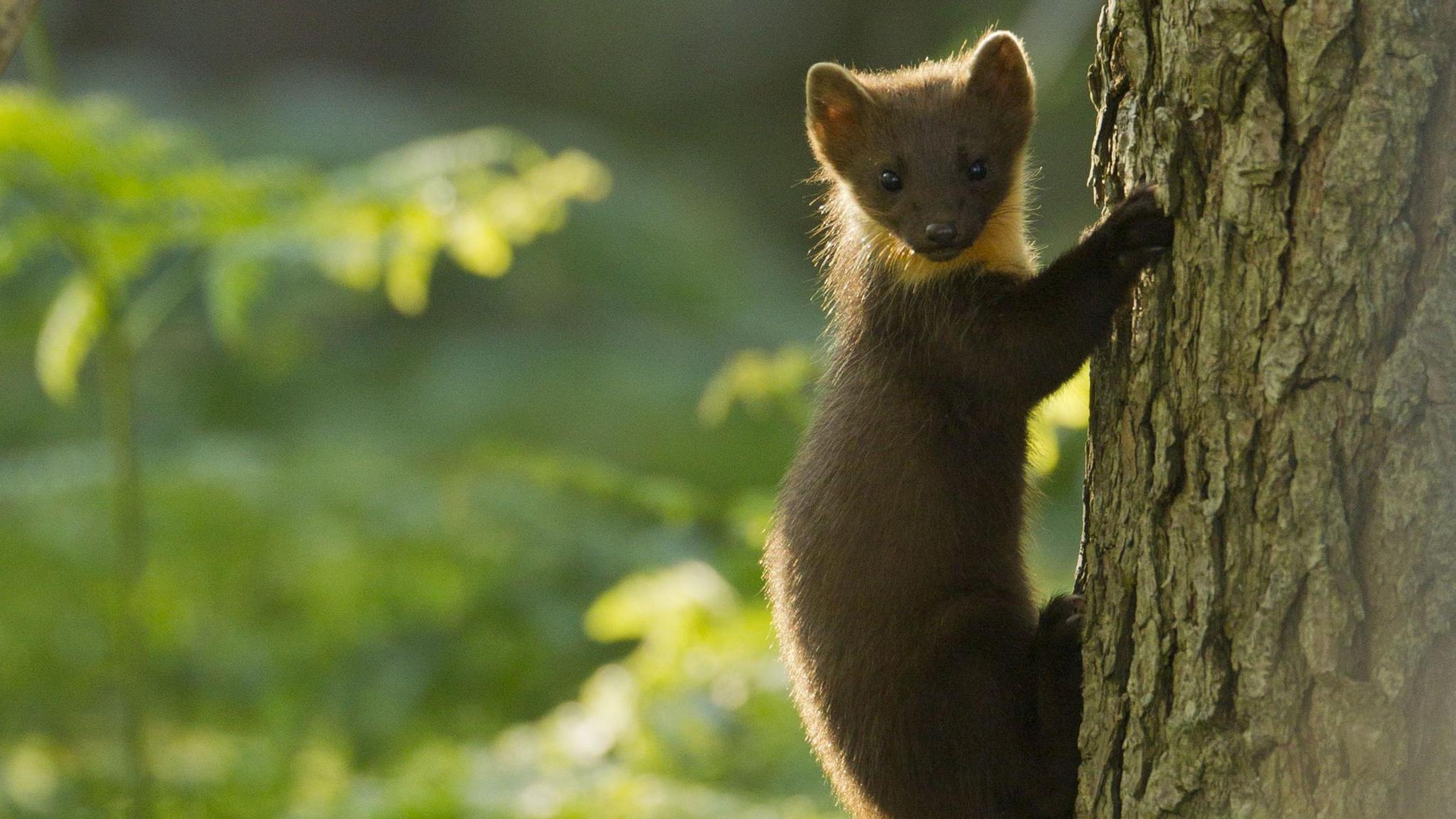Pine martens return to Dartmoor for first time in over 100 years

Experts say pine martens are an important predator in the ecosystem
- Published
Fifteen adult pine martens have been released into the wild in the South West of Britain for the first time in more than 100 years, conservationists say.
Eight females and seven males of the weasel-like creatures were released at secret locations in Dartmoor National Park in September.
It was a big moment for the project which hopes to mirror the results of other similar plans around the UK, by reintroducing the rare species and helping them thrive in the wild.
The newly released cat-sized mammals have been sourced from healthy populations in Scotland and checked over by vets before they were moved into their new surroundings in Devon.
Pine martens could return to Dartmoor
- Published18 April 2024
Pine marten numbers almost double in Northern Ireland
- Published1 June 2023
Rare sighting of a pine marten in London woods!
- Published14 September 2022

Be free! The moment a pine marten was released into the wild
Pine martens are shy, nocturnal animals so the new residents of Dartmoor arrived at night.
They were placed in separate specially-constructed pens and given food and water by local volunteers.
After spending three days and nights getting used to their new environment, they were then allowed to venture out into the wild where they will be tracked for the next six months using special radio collars.
These collars will automatically drop off in around six to nine months time.

Known for being great tree climbers, pine martens eat voles and mice, but also rabbits, small birds, birds’ eggs, berries and insects
Pine martens are excellent tree-climbers and are members of the weasel family.
They became extinct in the South West more than 100 years ago after the loss of their woodland habitats.
The population was already low in numbers due to them being hunted and trapped for sport in the 19th century.
Things you probably didn't know about pine martens
Ed Parr Ferris, conservation manager at Devon Wildlife Trust, said: "Pine martens are stunning members of the weasel family, about two foot long, weighing just 1.5 kilos, with their creamy-orange bibs contrasting against their smooth chocolate-coloured coat.
"They are amazingly well adapted for life in the woodland night, with strong claws, lithe bodies, fantastic hearing and even reversible rear ankles helping them to run down trees.
"These rare mammals need our help to return to their former homes in the South West, but we also need their help to bring back the natural balance of wildlife to our woodlands."
